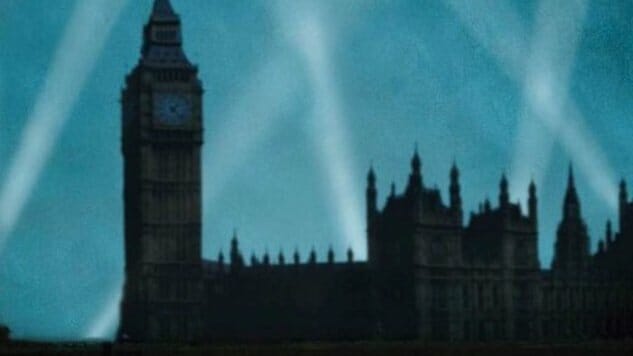Introducing Endless Mode: A New Games & Anime Site from Paste
Originally coined in 1939, “Keep Calm and Carry On” has known a second life unlike any other propaganda slogan of the 20th century. The five words, written by the British Ministry of Information during the early days of Germany’s air raids on London, have transitioned from an obscure battle cry to a pop culture casualty stripped of emotional weight. Erased are the years of war the phrase was intended to help citizens survive, the pain of emotional and physical loss and the sheer destruction through which the British triumphed.
 It’s this story that Chris Cleave brings to life in Everyone Brave is Forgiven. Despite never including the phrase in the novel, “Keep Calm and Carry On” rings in the reader’s head as this narrative of survival in the face of uncertainty unfolds. Struggling to find their footing in a world falling apart at their very feet, the novel’s characters find that bravery and forgiveness are at once far off ideals and immediately necessary skills.
It’s this story that Chris Cleave brings to life in Everyone Brave is Forgiven. Despite never including the phrase in the novel, “Keep Calm and Carry On” rings in the reader’s head as this narrative of survival in the face of uncertainty unfolds. Struggling to find their footing in a world falling apart at their very feet, the novel’s characters find that bravery and forgiveness are at once far off ideals and immediately necessary skills.
Mary North, the daughter of a politician angling for a place in the Cabinet, volunteers for the War Office as soon as she hears that Britain has declared war on Germany. Assigned to teach but sidelined due to her more cordial than was deemed appropriate relationship with her students, Mary falls in with the new district head, Tom Shaw, who sets her up with a class of special needs and minority students. The two begin a relationship, disrupted by a visit from Alistair Heath, Tom’s flatmate and an officer who, after leaving London, is stationed in sieged Malta. Over the first three years of the war, these three and Mary’s childhood friend Hilda must adapt to the rapidly changing circumstances they find themselves in.
Although marketed as a love story, this characterization feels disingenuous. Love is at the center of the novel; first Mary and Tom’s love, and later Mary and Alistair’s confusion at their affection for one another. But this is not a tale about love overcoming all obstacles. This is a narrative about a war, and the struggle to find order in the debris of a slowly but steadily bombed out city.
Cleave excels at building tension grounded in uncertainty, despite the reader knowing the results of World War II. The book concludes in mid-1942 (with three years left of the war), and the knowledge that the story ends well before the fighting does makes the horrors his characters endure all the more shocking. They have lost loved ones, suffered debilitating injuries and survived drug addiction and bombs. It seems naïve to assume the worst is behind them.
But the novel itself appears unaware of the horrors it hides. The characters banter like 1940s film stars, even in the face of almost certain death. The British cliché of the stiff upper lip takes on a new meaning when it’s deployed against amputation, drowning and the deplorable racial norms of the time. The effect is a chilling juxtaposition between sudden violence and humor, yet it rings true. Cleave maintains a balance between the repartee his characters engage in and their fears, doubts and lingering mental scars. This is their everyday life, and it doesn’t do to give in to sorrow; cracking a joke is easier than confronting an existential crisis and a seemingly unstoppable war machine.
It’s a testament to the strength of Cleave’s writing that the reader feels the shock of each sudden turn. The pictures he paints are so vivid that when they are disrupted by an air raid, a plane crash or another catastrophe, the reader is forced to adapt to this new reality along with the characters. It’s clear that keeping calm is, in and of itself, an incredibly challenging task and to carry on requires Herculean strength.
Everyone Brave is Forgiven is, quite simply, a tour de force.

 It’s this story that Chris Cleave brings to life in Everyone Brave is Forgiven. Despite never including the phrase in the novel, “Keep Calm and Carry On” rings in the reader’s head as this narrative of survival in the face of uncertainty unfolds. Struggling to find their footing in a world falling apart at their very feet, the novel’s characters find that bravery and forgiveness are at once far off ideals and immediately necessary skills.
It’s this story that Chris Cleave brings to life in Everyone Brave is Forgiven. Despite never including the phrase in the novel, “Keep Calm and Carry On” rings in the reader’s head as this narrative of survival in the face of uncertainty unfolds. Struggling to find their footing in a world falling apart at their very feet, the novel’s characters find that bravery and forgiveness are at once far off ideals and immediately necessary skills.